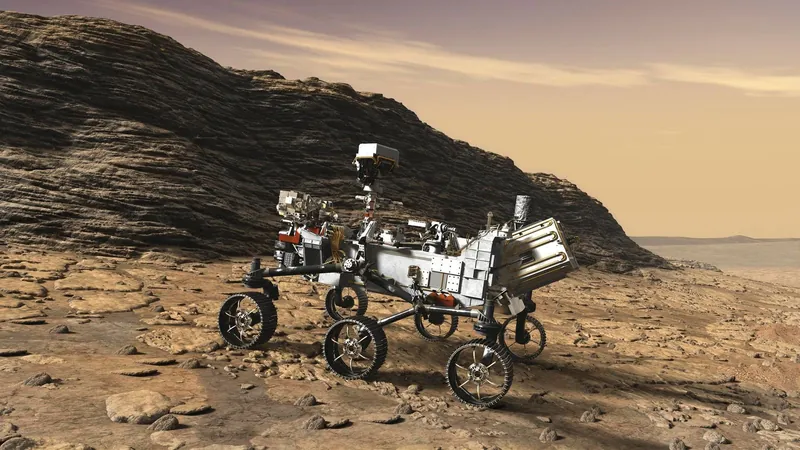
NASA's Mars Mission Faces Skepticism: Are These Biosignatures Really from Life?
2025-09-23
Author: Noah
Challenging the Mars Findings
NASA's recent announcement about the Perseverance Rover's discovery of potential biosignatures in Jezero Crater has stirred up significant controversy. Leading geoastronomer Stephen Mojzsis, known for his skeptical stance on previous Mars findings, is questioning the very hypothesis of life suggested by NASA's discovery.
What the Rover Found
Perseverance has been busy collecting samples from an area of Mars that is believed to have been habitable around 3.5 billion years ago. This includes a core sample from the Bright Angel rock formation, located in a region carved by ancient water flows. Among these samples is one intriguingly named "Sapphire Canyon," securely stored and awaiting future transport back to Earth.
Debating the Significance of Bacteria Indications
The team behind the findings claimed that the organic matter and distinctive minerals in these rocks could be signatures of past microbial life. These include nodules enriched in ferrous iron phosphate and sulfide minerals, which some believe could signal ancient biological activity.
However, Mojzsis counters that the same minerals can form through non-biological processes. He points to similar findings in meteorites, suggesting that such chemical reactions do not necessarily point to the existence of life.
Mojzsis’s Perspective
Mojzsis asserts that without a clear understanding of how life on Earth began, any claims about finding biosignatures elsewhere must be treated cautiously. He invites a broader conversation about what these findings truly mean and challenges the interpretation that these minerals indicate life.
NASA's Response
In contrast, the lead author of the Nature paper, Joel Hurowitz, remains optimistic. He acknowledges Mojzsis’s concerns but emphasizes that scientific discussions will further refine the findings, insisting that the current data cannot be overlooked.
The Takeaway
As the scientific community continues to debate, Mojzsis remains unconvinced. "I have yet to see any compelling evidence whatsoever that life arose on Mars," he declares. This ongoing debate highlights the complexities involved in identifying signs of past life beyond Earth—and raises the question: What will it take to prove that we’re not alone in the universe?









 Brasil (PT)
Brasil (PT)
 Canada (EN)
Canada (EN)
 Chile (ES)
Chile (ES)
 Česko (CS)
Česko (CS)
 대한민국 (KO)
대한민국 (KO)
 España (ES)
España (ES)
 France (FR)
France (FR)
 Hong Kong (EN)
Hong Kong (EN)
 Italia (IT)
Italia (IT)
 日本 (JA)
日本 (JA)
 Magyarország (HU)
Magyarország (HU)
 Norge (NO)
Norge (NO)
 Polska (PL)
Polska (PL)
 Schweiz (DE)
Schweiz (DE)
 Singapore (EN)
Singapore (EN)
 Sverige (SV)
Sverige (SV)
 Suomi (FI)
Suomi (FI)
 Türkiye (TR)
Türkiye (TR)
 الإمارات العربية المتحدة (AR)
الإمارات العربية المتحدة (AR)